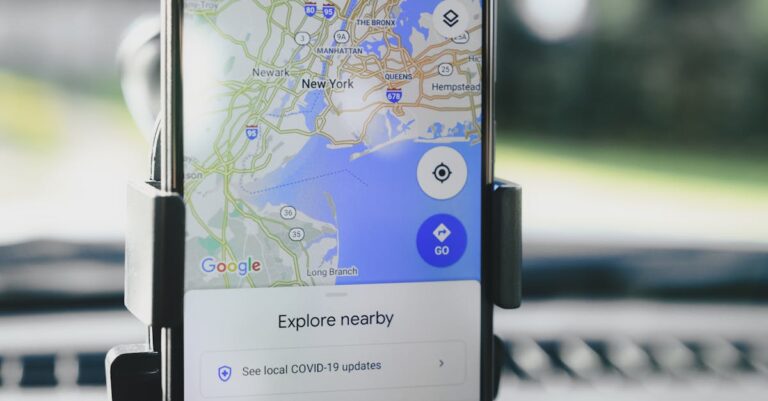In a world where snooze buttons are often more popular than morning runs, motivation speeches can feel like a lifeline. They’re the jolt of caffeine for the soul, the pep talk that transforms “I can’t” into “I totally can!” Whether it’s a powerful TED Talk or a rousing address from a favorite coach, these speeches pack a punch that can ignite passion and drive.
Imagine being in a room filled with people, all hanging on every word, fueled by inspiration and laughter. Motivation speeches don’t just uplift; they challenge listeners to break free from their comfort zones and chase their dreams like a kid chasing an ice cream truck. With the right words, a speaker can turn complacency into action and dreams into reality. So, buckle up as we dive into the world of motivation speeches and discover how they can spark the fire within.
Table of Contents
ToggleOverview of Motivation Speeches
Motivation speeches serve as powerful catalysts for change. Their primary goal involves inspiring individuals to overcome obstacles and embrace their potential. Audience members often leave feeling energized and ready to take action.
Effective speakers utilize personal stories and relatable experiences to connect with listeners. The use of engaging language captures attention and stimulates emotional responses. Specific techniques like repetition and rhetorical questions reinforce key messages.
Impact often varies based on the speaker’s delivery style. Charismatic orators can evoke strong feelings, while others might present practical advice. Motivational speeches cater to diverse audiences, ranging from corporate settings to educational institutions.
Classical examples include speeches by figures like Martin Luther King Jr., who ignited hope with powerful rhetoric. Contemporary speakers also thrive in this arena, using platforms like TED Talks to reach global audiences. Tailoring content to specific groups fosters deeper connections and enhances retention of information.
Statistics support the effectiveness of motivational speeches. Research indicates that participants achieve higher goal attainment when exposed to inspirational content. Feedback from attendees frequently highlights increased self-efficacy and determination.
Motivation speeches play a crucial role in personal and professional development. Their influence transcends mere words, offering individuals the tools they need for transformation. By leveraging powerful narratives and techniques, speakers ignite lasting change in listeners’ lives.
Key Elements of Effective Motivation Speeches
Effective motivational speeches incorporate several key elements. Engaging storytelling captures attention and resonates with listeners on a personal level.
Engaging Storytelling
Engaging storytelling forms the heart of impactful motivational speeches. Personalized anecdotes create relatability, allowing audience members to connect emotionally with the speaker. Influential speakers often share their personal journeys, including struggles and successes, to illustrate transformation. Stories serve to humanize the speaker, fostering a stronger emotional bond with the audience. Memorable narratives can inspire action and empower listeners to envision their potential. Incorporating vivid imagery enhances the storytelling experience, making messages linger beyond the speech.
Persuasive Language Techniques
Persuasive language techniques enhance the effectiveness of motivational speeches. Speakers frequently utilize repetition to emphasize crucial points. Effective use of rhetorical questions encourages reflection and engages the audience actively. Powerful word choices evoke emotions and create urgency, motivating listeners to take action. Additionally, positive language fosters an inspiring atmosphere that stimulates hope and determination. Techniques such as contrasting ideas highlight obstacles versus possibilities, driving home the speech’s core message. Tailored language that resonates with specific audiences strengthens the overall impact, ensuring messages are not only heard but felt.
Famous Motivation Speeches
Motivational speeches have left lasting impressions throughout history. Iconic speeches inspire individuals with messages of hope and resilience.
Analysis of Iconic Speeches
Martin Luther King Jr.’s “I Have a Dream” stands as a hallmark of motivational rhetoric. This speech emphasizes equality and justice, resonating deeply with diverse audiences. Barack Obama’s “Yes We Can” captures themes of perseverance and hope, mobilizing people during challenging times. Other examples include Nelson Mandela’s inaugural address, which highlights freedom and perseverance after years of struggle. Each speech uses powerful imagery and emotional appeal, creating a strong connection with listeners. These iconic moments showcase how well-crafted speeches can lead to significant social change and personal empowerment.
Lessons from Renowned Speakers
Effective motivational speakers share several key strategies. Engaging storytelling captivates the audience, enabling listeners to resonate with personal experiences. Emotional honesty frequently strengthens connections, inviting vulnerability and trust. Utilizing repetition emphasizes core messages, ensuring audience retention. Diverse speakers also adapt language and content to suit their audience, enhancing relatability. Leaders like Oprah Winfrey teach the value of authenticity, while Tony Robbins focuses on actionable strategies for personal development. Each approach reinforces the potential for transformation through focused and passionate delivery of motivational content.
The Impact of Motivation Speeches
Motivational speeches significantly influence both individuals and groups in various contexts. They inspire action, promote change, and foster resilience.
Psychological Effects on Audiences
Motivational speeches can lead to profound psychological changes in audience members. Individuals often experience increased levels of optimism and self-efficacy. Research indicates that exposure to motivational content correlates with enhanced motivation to achieve goals. Emotional responses triggered by effective speeches empower listeners to confront challenges head-on. Many report heightened determination to pursue aspirations after engaging with powerful rhetoric. The energy generated during speeches cultivates a sense of urgency, prompting immediate action.
Applications in Various Fields
Motivational speeches find applications across multiple domains, including education, business, and personal development. In schools, educators leverage these speeches to inspire students toward academic success. Businesses utilize motivational content to enhance employee performance and morale. Leaders often implement motivational talks during conferences to cultivate teamwork and innovation. Coaches use speeches to drive athletes toward peak performance and mental toughness. Non-profit organizations employ motivational messages to galvanize communities around social causes. Each application underscores the versatility and effectiveness of motivational speeches in bridging gaps and encouraging progress.
Motivational speeches hold immense power to inspire and drive change. They create connections through relatable stories and emotional engagement. This unique blend of personal experience and persuasive language resonates deeply with audiences, often leading to transformative outcomes.
Whether delivered on a grand stage or shared in a classroom, these speeches can spark the motivation needed to overcome challenges and pursue dreams. As individuals embrace the messages conveyed, they find renewed determination and optimism.
Ultimately, the impact of motivational speeches extends far beyond the moment they are delivered. They leave lasting impressions that encourage ongoing growth and resilience in various aspects of life.





